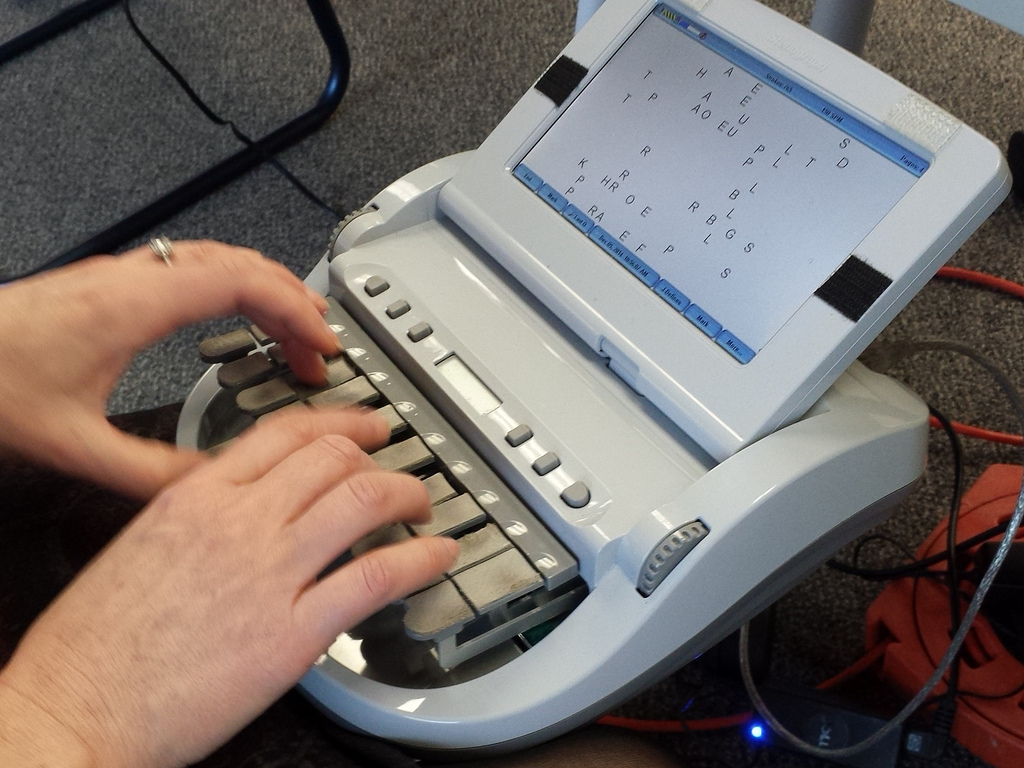What Makes court reporting Different From General Transcription Services?
What Makes court reporting Different From General Transcription Services?
Blog Article
Recognizing the Necessary Duty of Court Coverage in Legal Proceedings
Court coverage is typically ignored, yet it's essential in lawful proceedings. Allow's explore the essential functions of court reporting and its significance in the lawful landscape.
The Background of Court Coverage
Court coverage has a rich history that dates back to ancient people, where scribes made use of different techniques to catch spoken words. By the 16th century, contemporary shorthand systems started to take form, enabling court press reporters to generate precise records effectively.
In the 19th century, the creation of the typewriter revolutionized the occupation, making it easier to create readable documents. The intro of steno makers in the 20th century additionally progressed court reporting, enabling real-time transcription during trials. Today, court press reporters play a significant role in legal process, making certain that every word talked in the courtroom is accurately documented. Recognizing this background highlights the importance of court coverage in keeping a fair legal system.
The Skills Needed for Court Reporters
As a court reporter, you require solid inputting abilities to stay on par with the fast-paced dialogue of lawful proceedings. Your ability to pay attention diligently is equally as crucial, ensuring every word is captured accurately. Understanding these skills is crucial to delivering precise and reputable transcripts.
Skilled Inputting Capacities

Solid Paying Attention Abilities
Strong paying attention abilities are essential for stenotype reporter, as they should accurately record talked words in actual time. You need to focus intently on the dialogue, getting subtleties, tone, and context to assure every detail is taped properly. This skill aids you differentiate in between audio speakers, comprehend legal lingo, and follow complex discussions. It's not almost hearing words; it has to do with understanding and analyzing them promptly. You'll frequently deal with numerous accents and speech patterns, so flexibility is important. Exercising active listening techniques can boost your capabilities; for example, summarizing what you have actually listened to after conversations can reinforce your abilities. Inevitably, strong paying attention skills make you an essential possession in legal procedures, ensuring clearness and precision in the court record.
The Innovation Behind Court Reporting
In the domain of lawful proceedings, technology plays an essential function in enhancing the accuracy and efficiency of court reporting. You're likely familiar with the conventional stenotype machine, however contemporary court press reporters currently use innovative software that integrates with these makers, enabling real-time transcription. This indicates you can have immediate access to the records as the process unfold.
Digital audio recording is another technical development that's acquiring traction. It catches every spoken word, guaranteeing absolutely nothing is missed. Some press reporters utilize voice acknowledgment software program, which can help improve the transcription process, though it still requires human oversight for accuracy.
Furthermore, cloud-based storage space allows easy gain access to and sharing of transcripts, enhancing partnership amongst lawful groups. By leveraging these modern technologies, stenotype reporter can offer premium, prompt records that are why not try this out vital for the lawful process. Welcoming this technology not just boosts your understanding but additionally guarantees dependability in lawful paperwork.
The Court Coverage Process

As legal procedures unfold, the court reporting process comes to be crucial in catching every information accurately. You'll locate that a court reporter plays an important function by recording spoken words right into created message in real-time. When you enter the courtroom, the reporter is currently prepared, equipped with specialized devices like stenographic equipments and audio recording tools.
Throughout the process, the press reporter listens diligently, typing out whatever said, from witness testaments to lawyers' disagreements. You may discover them stopping briefly occasionally to assure clarity or to ask for a repeat if something wasn't clear. After the session, the reporter reviews the transcript, making needed edits for readability.
This whole process not just guarantees an extensive record however additionally prepares you for future recommendation throughout charms or instance reviews. In the busy atmosphere of a courtroom, the court reporting procedure is crucial for keeping an exact account of occasions.
The Relevance of Accuracy in Transcripts
While a court reporter's main responsibility is to transcribe talked words, the accuracy of these transcripts is crucial for the stability of legal proceedings. When you're entailed in an instance, you count on precise paperwork to comprehend the events and disagreements offered. Any kind of mistakes in transcription can lead to misconceptions, misconceptions, and even wrongful judgments.
Accurate records assure that every information is captured, providing a reliable document for courts, lawyers, and courts. This level of detail is crucial during appeals or when referencing previous statements. If a transcript has mistakes, it can weaken the entire legal procedure, possibly impacting end results.
Furthermore, accurate records support the civil liberties of all events involved, advertising fairness and transparency. So, whether you're a legal representative preparing for trial or a witness reviewing your testimony, you can rely on that the court reporter's ability in precision plays a substantial duty in your situation's success.
The Role of Court Reporters in Different Legal Setups
Court press reporters play a vital role in different legal settings, from tests to depositions and lawful hearings. You'll find that their work warranties every spoken word is accurately caught, which is vital for the legal process. Comprehending just how their obligations vary throughout these settings can highlight their effect on the justice system.
Court Reporters in Trials
In any kind of legal trial, you'll locate that stenotype reporter play an essential duty in catching the procedures with precision and accuracy. They transcribe every little thing talked in the court room, making sure that every word is recorded for future referral. This document becomes vital for charms, enabling higher courts to assess the trial's integrity. Court reporters should keep emphasis and rate, commonly using customized tools to stay on par with fast-paced discussion. Their work supports lawyers, judges, and juries by giving an official account of testimonies and arguments. If disparities occur, the transcript acts as a reputable resource to clarify what was said. Inevitably, court press reporters aid promote the justice system, guaranteeing openness and liability throughout trials.
Depositions and Legal Hearings
Beyond trials, court reporters also play an essential function in depositions and legal hearings. Court reporters supply real-time transcription solutions, enabling attorneys to follow along and address any kind of issues quickly. In short, court reporters are crucial in maintaining the stability and clarity of the legal record in depositions and hearings.
Future Patterns in Court Reporting
As innovation remains to advance, the future of court reporting guarantees to be shaped by cutting-edge tools and methods that improve precision and performance. You'll likely see raised use expert system and real-time transcription solutions, simplifying the reporting procedure. These advancements can help you gain access to transcripts much faster, which can be crucial for your lawful strategies.
Furthermore, integrating video conferencing and remote coverage anchor will certainly become extra common, enabling you to connect with court reporters from anywhere (court reporting). This versatility can make depositions and hearings a lot more accessible, conserving both time and sources
You'll also notice an emphasis on electronic recordkeeping, which streamlines the storage and retrieval of records. With cloud-based solutions, you'll have the capability to share documents firmly and collaborate with your legal team in real-time.
Regularly Asked Concerns
What Is the Ordinary Salary of a Court Reporter?
The typical income of a stenotype reporter varies by location and experience, yet you can expect it to range from around straight from the source $50,000 to $80,000 annually. Several factors influence this earnings, including expertise and demand.
How Do I End Up Being a Certified Stenotype Reporter?
To end up being a certified court press reporter, you'll need to complete a court reporting program, pass a certification examination, and gain useful experience. It's essential to stay upgraded on sector requirements and proceeding education needs.
What Sorts of Cases Do Court Reporters Cover?
Court reporters cover various instances, including criminal trials, civil suits, depositions, and settlement hearings. You'll find them documenting whatever, ensuring exact documents for judges, attorneys, and parties involved, catching every word talked in lawful setups.
Are Court Reporters Required to Have a Level?
Yes, court reporters normally require a degree or qualification in court reporting. Several programs use specialized training, ensuring you gain the skills needed for precise transcription and legal documentation in numerous settings.
Can Court Reporters Job From Another Location?

Report this page